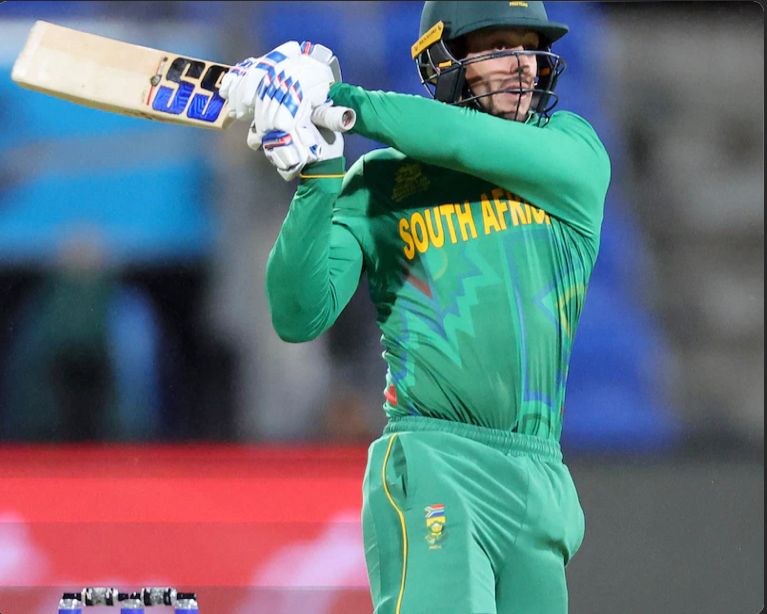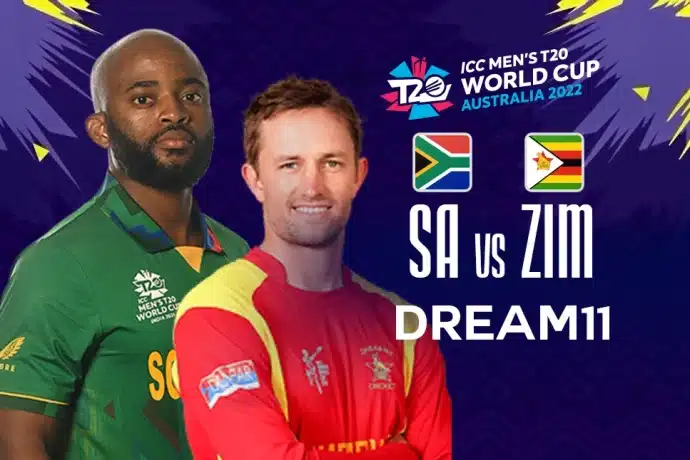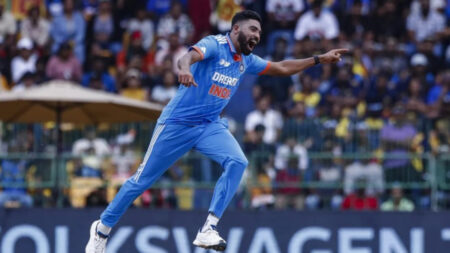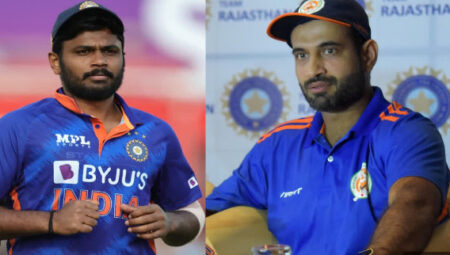No result Zimbabwe 79 for 5 in 9 overs (Madhevere 35*, Ngidi 2-20) vs South Africa 51 for 0 in 3 overs (de Kock 47*)
Rain prevented South Africa from winning their T20 World Cup opener against Zimbabwe, which resulted in a shorter game. The match was cut down.
Coach Houghton of Zimbabwe is enraged at the umpires for continuing the game on the wet outfield.
Dave Houghton, the coach of Zimbabwe, was extremely critical of his team’s choice to play against South Africa despite the increasing amount of rain in Hobart, claiming that he didn’t think the “conditions were right to play” and that Zimbabwe “shouldn’t have bowled a ball.”
The game on Monday in Hobart was repeatedly postponed due to rain before it was finally called off with South Africa leading.
With 24 balls remaining and all ten of their wickets in hand, South Africa still needed 13 runs to win, but the innings hadn’t yet hit the statutory five-over threshold that must be reached for a game to have a winner.
Zimbabwe’s bowlers and fielders frequently voiced their displeasure about the drenched outfield during the chase as the rain grew gradually heavier.
The umpires kept the players in the game even after fast bowler Richard Ngarava slipped and needed to be removed due to injury.
Despite de Kock’s assault, South Africa and Zimbabwe split the victory as Rain gets the final say.
Rain forced the game’s conclusion after only three overs, even though South Africa had reached the five-over DLS par with no wickets lost.
to nine overs on each side after a two-and-a-half-hour delay.
After bouncing back from being 19 for 4, Zimbabwe set South Africa a target of 80, which was later reduced to a goal of 64 in seven overs due to more inclement weather.
Even though South Africa had faced only three overs at that point—a T20 match is only declared complete when both teams have faced at least five overs—they were well ahead of their five-over DLS par score when the players once again left the field due to rain.
If the match authorities had been able to continue the match as a five-over chase, South Africa might have still prevailed.
South Africa already had a score of five over par, thus the players simply had to enter the field to get a result—even if the rain had forced them to leave right away.
Ineffective Powerplay
There is just one way to approach a nine-over inning: swing. And Zimbabwe took that action. or at least made an attempt.
After scoring 0, 13, and 4 in the first round, Chakabva is still looking for his rhythm. He was hesitant against Rabada, but Ervine heaved at the first two Parnell deliveries he faced before toe-ending a catch to Lungi Ngidi at mid-on.
When Chakabva launched Ngidi over deep midwicket, he had some determination, but Ngidi swiftly drew his length back and had Chakabva nicking off of the subsequent ball.
Sikandar Raza, who Zimbabwe sent in early, was unable to continue his incredible run. He nearly top-edged a short ball over de Kock’s head by top-edging it high, but the South African goalkeeper sprang just in time to grab it with one hand.
Only 14 runs were scored in Zimbabwe’s three-over powerplay at the cost of three wickets.
A comedy of errors comes first, then the target
The rain got the last laugh as Quinton de Kock’s unbroken 18-ball 47 almost gave South Africa the victory.

When Regis Chakabva mishit Kagiso Rabada back to him and was called through for a run by Craig Ervine at the end of the first over, South Africa should have had one and could have had both Zimbabwe openers run out.
As Rabada gathered and tossed de Kock widely and erratically from behind the stumps, Chakabva heeded the call.
Ervine was still in the middle of the field when South Africa gathered themselves enough to toss the ball to Tristan Stubbs, who was backing up, at the non-end. striker’s Ervine stood his ground as the ball brushed by him Rabada chuckled at the antics.
Three over later, as Wessely Madhevere tapped Wayne Parnell into the covers and departed, he was grinning.
By the time Miller had gathered and decided to aim at the striker’s end, he had collided with his batting partner Sean Williams in the middle of the ground. He targeted two stumps and hit them, catching Williams well from his ground.
Read More: NASA Assigned Team to Analyse UFO and UAP Opens Study













